The President's Message – 4 October
Hello, I’m Dr Jacqueline Small, President of the Royal Australasian College of Physicians. I would like to acknowledge the Gadigal people of the Eora Nation as the traditional owners and custodians of the lands I am speaking on today. I extend my respect to all Aboriginal, Torres Strait Islander, and Māori people. Together we restate our shared commitment to advancing Aboriginal, Torres Strait Islander and Māori health and education as core business of the RACP.
I recently read an article that deeply moved me. It was an anonymous trainee’s story of preparing for our examinations. The ordeal of juggling 13-hour shifts, study, sleep, relationships, relentless practising of multi-choice questions, and, in their own words, `somehow’ managing to pass the Divisional Written Exam. Then they listed what they described as months of dedicated case presentations in preparation for the Clinical Exam, only to fail it.
The trainee describes the consequent cascade of personal and professional effects and life events. It’s a harrowing story, and one that has deeply moved me. While I really regret that trainees experience this, I am pleased that this story has been shared. Personal stories are powerful motivators for change. I’ve linked to the article in my transcript.
I want to personally emphasise to you that our College is aware of the impacts to health and wellbeing of these enormously high stakes, summative examinations. Yes, being a physician is a challenging, at times confronting and ultimately rewarding occupation. But training to be a physician should not be a trial by ordeal. Times have changed – and that thinking should change too.
Trainee health and wellbeing is a matter of ongoing concern for us, and we understand that there are issues with the current Adult and Paediatric Divisional Examination structures. We can and will maintain our high standards, but we also recognise that wellbeing is important. It's important for quality health care and important for us as a community of physicians and paediatricians.
Our Executive General Manager of Education, Learning and Assessment, Professor Inam Haq, is looking to a holistic review of the role and structure of examinations in future. The scope of that review is to be developed. We will ensure that our exams are aligned with the new Basic and Advanced Training curricula.
Many of the stressors for trainees during the examination cycle are workplace issues, and outside the College’s direct control. But we do have the ability to influence health and wellbeing, and culture in training settings through accreditation. We’re going to be reviewing our accreditation settings next year.
We’re also regularly working with other Colleges and health jurisdictions to ensure health and wellbeing is a shared responsibility, and that issues can be raised quickly. Sometimes our professional journey can be very challenging and at times daunting. Mine certainly has been at times.
I have reached out to some colleagues to seek their wisdom and want to share this with you. A wonderful colleague for whom I have the deepest respect, reflected on the difference between our earliest experiences in medicine. We often build networks through study groups, while other students build friendships while socialising – such a difference.
She also spoke of the importance of self-care and to remember the honour of our role as physicians, something that is so easily forgotten in the business of our lives. To me that is a validating and rewarding thought.
Another colleague spoke of the importance of persistence, Vitamin P. If you persist then yes remains possible. Because you can't do everything, he suggests that we need clear intent, mission focus and battle rhythm.
Another physician told me that when she is going through a tough challenge of any kind, she first takes a breath and reflects on her place in time and space to gain perspective. Come at everything with empathy and kindness for others. It can be hard when we are under pressure so she is even more deliberate that her actions are congruent with her personal values.
A First Nations member told me that Aboriginal and Torres Strait Islander people can give advice without the door being closed because the “hearing party” is concerned about the communication. The hearing party needs to persist in their own growth.
Reading the trainee’s story prompted me to reach out to others and I have been encouraged by their words. I hope that you are too.
Now, onto other issues. I was excited to hear from Cate Storey, Chair Library, Heritage and Culture Committee that she is looking for short 300 word stories from College members. She wants to capture the stories of who we are and what has been important to us through our professional lives in this our 85th year. Our College is changing, yet your stories remain our story.
So get writing and tell the story of who we are as a College.
Thank you for watching.
Dr Jacqueline Small
RACP President
To contact Jacqueline, please email president@racp.edu.au

In the lead-up to the 2023 election in Aotearoa New Zealand, the RACP is calling on the government to #HealHealthcare, and commit to ensuring our health workforce is planned, trained, and retained.
Our election statement sets out four priority policy areas for action to support our health workforce and heal our health system:
- data-driven and evidence-informed health workforce planning
- grow the medical workforce to reflect the diversity of the population
- address barriers to accessing telehealth
- prevent burnout to retain workforce and improve patient outcomes.
To sit alongside our election statement on the health workforce, this document outlines other priority advocacy areas for the RACP including our positions on:
- hauora Māori me Ōritetanga | Māori health and equity
- achieving health equity through the social determinants of health: the #MakeItTheNorm campaign
- climate change and health.
Read our election statement and media release on our election webpage, which includes information on how you can get involved in the election advocacy work.
We are also pleased to share that the New Zealand Herald published our media release in an exclusive story, following an interview with Aotearoa New Zealand President, Dr Stephen Inns. Health Minister Dr Ayesha Verrall and National’s Health Spokesperson Dr Shane Reti were also interviewed and have commented in detail on the RACP’s election asks. Dr Verrall has expressed support for expanding telehealth, and is focused on reducing the ‘postcode lottery’ and workforce retention, and Dr Reti has expressed broad agreement with the RACP’s asks.
Listening to First Nations voices has significant impacts on healthcare. In the lead-up to the referendum on the Aboriginal and Torres Strait Islander Voice to Parliament, we asked what some of our members had to say. You can also access our public statement, government resources and more on our website.
Watch the videos on YouTube
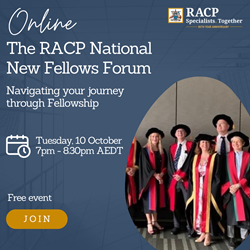 Are you an Advanced Trainee or have you recently become a Fellow? We have an event exclusively for you. Join us online on Tuesday, 10 October from 7pm AEDT to learn all the things you need to know about being an RACP Fellow. Hear from the RACP President, College Dean, CPD Committee Chairs, and many more, as they provide you with expert advice to make the most of your Fellowship opportunities.
Are you an Advanced Trainee or have you recently become a Fellow? We have an event exclusively for you. Join us online on Tuesday, 10 October from 7pm AEDT to learn all the things you need to know about being an RACP Fellow. Hear from the RACP President, College Dean, CPD Committee Chairs, and many more, as they provide you with expert advice to make the most of your Fellowship opportunities.
We're here to support you, so feel free to ask any questions you may have during our panel discussion.
Register now
Obesity and type two diabetes are driving an increasing share of avoidable hospitalisations in Australia. The prevalence of these chronic conditions is greater in our priority patient communities, rural communities and First Nations communities.
Health Minister the Hon Mark Butler called for an inquiry into diabetes and obesity in 2022. Seizing the opportunity, the RACP recently made a compelling submission to the resultant Parliamentary Standing Committee on Health, Aged Care and Sport inquiry on Diabetes. The RACP submission called for broad ranging reforms for preventive initiatives, including national media regulation to curb the advertising of junk food and sugary drinks advertisements to children consistent with the RACP Switch Off the Junk campaign. The submission also called for reforms to the health system, PBS and the funding of bariatric surgeries to better support our patients with type two diabetes and obesity.
The RACP received national media attention for its submission on radio and television news outlets on the back of a media release promoting the RACP submission.
Professor Louise Baur AM FRACP, Professor of Child & Adolescent Health, Sydney Medical School, represented the RACP in person in Canberra at an engaging hearing on 15 September where the RACP submission was discussed in greater detail. Throughout the hearing, the RACP stressed the need for more publicly funded secondary and tertiary obesity and diabetes clinics, bariatric surgeries and streamlined access to novel and emergent pharmacological treatments, and more integrated care models moving beyond fee-for-service to include specialists in value-based funding models. Prevention and stigma also featured as core discussion areas.
The RACP appreciates the value and experience that Indigenous and Māori doctors can provide to the health sector and communities in treating Indigenous and Māori health issues.
The RACP Indigenous Health Scholarship Program is about making a difference. Aboriginal and Torres Strait Islander and Māori doctors remain significantly under-represented in the health sector. As a leading Australasian medical college, it’s important we play a strong role in growing the Indigenous medical workforce.
These Scholarships provide funded pathways through physician training. Applications close Wednesday, 30 November 2023
The National Disability Insurance Scheme (NDIS) supports people with a permanent and significant disability that affects their ability to take part in everyday activities through an equitable, effective and responsive disability support system. The NDIS serves as a platform where the community, government and industry can work together to help address the needs of people with disability.
The NDIS Guide for Physicians was developed to equip physicians with the skills and knowledge to work effectively within the NDIS model and support the delivery of high-quality care to patients with disability. The Guide has been refreshed for 2023 and provides practical, user-friendly information for RACP members on topics including eligibility, planning and funded supports. Read the new comprehensive Guide and access more information on the new disability webpage.
Thank you to the Disability Policy and Advocacy Advisory Group for your work on this Guide.
To commemorate our 85-year anniversary, you're invited submit your stories for the College's 85th Anniversary Publication. Eighty-five submissions will be curated into a publication to showcase the diverse journeys of our members and their personal connection with our College.
All submissions received will also be published in the College Roll under the webpage 'my career story - 85-year anniversary edition'.
Please celebrate our 85-year anniversary by sharing your life and journey through your career.
In September 2023, the RACP provided a submission to the Department of Health and Aged Care as part of foundational work to develop a new Aged Care Act. This addresses the Royal Commission into Aged Care Quality and Safety finding that the current Aged Care Act 1997 is no longer fit for purpose. Members from a range of relevant specialties, including in particular geriatric medicine, contributed insights to ensure the new Act improves the provision of health care services to older people. The submission precedes the Department’s development of a planned Exposure Bill.
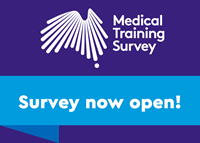 The Medical Board of Australia’s Medical Training Survey (MTS) is open until early October. All doctors-in-training in Australia, including RACP trainees, are eligible and encouraged to participate. This year’s survey will build on results from past years and help our College monitor trends in training experiences over time. Results from last year’s MTS revealed overall satisfaction with workplace training experiences, but raised concerns around intensifying workloads, troubling workplace culture, and inadequate access to flexible working arrangements.
The Medical Board of Australia’s Medical Training Survey (MTS) is open until early October. All doctors-in-training in Australia, including RACP trainees, are eligible and encouraged to participate. This year’s survey will build on results from past years and help our College monitor trends in training experiences over time. Results from last year’s MTS revealed overall satisfaction with workplace training experiences, but raised concerns around intensifying workloads, troubling workplace culture, and inadequate access to flexible working arrangements.
If you're an RACP trainee, don't miss this important feedback opportunity. Your experiences will be used to enhance education and training experiences for others.
The RACP will use the 2023 survey findings to:
- help strengthen our training programs and activities
- identify and address wellbeing issues
- provide training settings with data to encourage and focus improvement
- inform Training Setting accreditation activities.
How trainees can access the survey
A survey link is provided to trainees once they renew their medical registration with Ahpra. Further details can be found by visiting the Medical Training Survey website. If you have questions regarding the MTS, please email MTS@ahpra.gov.au.
Find out more
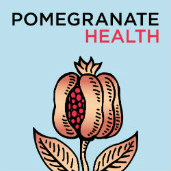 The RACP podcast, Pomegranate Health, has recently published its 100th episode since starting out eight years ago. To provide more frequent and focused content we’re seeking contributions from our speciality societies, committees and affiliated professional organisations.
The RACP podcast, Pomegranate Health, has recently published its 100th episode since starting out eight years ago. To provide more frequent and focused content we’re seeking contributions from our speciality societies, committees and affiliated professional organisations.
You already spend considerable time preparing lectures and webinars for your colleagues. Audio podcasts provide an easy way to reach thousands more around the world. Each episode gets downloaded approximately 6,500 times over the first 12 months from publication, with 21 per cent of listeners located outside of Australia and Aotearoa New Zealand.
All you need to do is to organise one or more presenters and an interviewer familiar with the material.
The podcast producer will coordinate an online recording lasting about one hour and then edit it down before publication.
As a model of what this would sound like, see the episodes tagged [IMJ On-Air]. These episodes feature authors published in the Internal Medicine Journal being interviewed by the relevant section editor. They have covered themes as varied as asthma management, hospital-acquired complications, causes of readmission and the JEV outbreak. The intention would be to ‘brand’ regular episodes from the society in the same way we’ve done with [IMJ On-Air].
Please send any questions or ideas to Mic Cavazzini at mic.cavazzini@racp.edu.au
Listen now
 We’ve known for a decade that about 50 per cent of doctors meet the criteria for burnout, and the figure is up to 70 per cent among trainees. But organisations have been left to come up with their own solutions to this, the result being that many simply offer band aid solutions rather than systemic ones.
We’ve known for a decade that about 50 per cent of doctors meet the criteria for burnout, and the figure is up to 70 per cent among trainees. But organisations have been left to come up with their own solutions to this, the result being that many simply offer band aid solutions rather than systemic ones.
Unforgiving work conditions pose a problem for both recruitment and retention of staff in the healthcare workforce. The New Zealand Health Department, Te Whatu Ora, forecasts that within ten years supply of doctors, pharmacists and nurses will fall short of demand by 14 to 18 per cent. In response they have established a national Health Charter that sets the workplace standards to keep staff safe and engaged.
Australia is one step behind, but in early September there was a leadership conference aimed at developing a similar wellbeing strategy nationally. It was envisaged that there would be Chief Wellness Officers at every major health service, reporting validated metrics about their workforce to a national taskforce. And as explained in the keynote presentation at the conference, at the organisational level there are different responses appropriate to the three main domains that influence staff wellbeing; these being personal resilience, professional culture and basic administrative efficiency. This podcast captures reflections from wellbeing champions at several different Australasian health jurisdictions.
Guests
- Dr George Eskander MB DCH DRANZCOG FRACGP (Executive Area Director Clinical Services; North Metropolitan Health Service & Sir Charles Gairdner Osborne Park Hospital Care Group)
- Dr Bethan Richards MB FRACP MMed MSportsMed (Head of Rheumatology, Chief Medical Wellness Officer, Royal Prince Alfred Hospital; Senior Clinical Lecturer, The University of Sydney)
- Dr Joanna Sinclair MB FANZCA 2011 (Senior Medical Officer Wellbeing Lead, Counties Manukau Health)
- Victoria Hirst (Chief of Knowledge Networks, General Manager of Health Roundtable, Beamtree)
- Associate Professor Anne Powell BPharm, MBBS, FRACP (Program Director of Physician Education, Alfred Health in Melbourne; Monash University)
- Professor Jennifer Martin MBChB MA FRACP PhD GAICD (Chair of Clinical Pharmacology, University of Newcastle; John Hunter Hospital)
Subscribe
Please visit the Pomegranate Health web page for a transcript and supporting references. Log in to MyCPD to record listening and reading as a prefilled learning activity. Subscribe to new episode email alerts or search for ‘Pomegranate Health’ in Apple Podcasts, Spotify, Castbox, or any podcasting app.
As healthcare workers who dedicate our lives to helping others, it’s important to take the time to care for ourselves. We would like to remind everyone that it's okay to not be ok. If you need someone to talk to, you can reach out to the RACP Support Program. It's a free, 24/7 and completely confidential support service that is delivered externally through Converge International.
Whether you have something worrying on your mind, are finding getting out of bed to be a struggle, or just feel like talking to someone for helpful, judgement-free advice, this free support service may be just what you need.
Find out more

Registrations for the remaining RACP panel discussions are closing soon. Join us in a city near you as they bring a diverse perspective to topics confronting the physician of the future such as:
- the impacts of AI on the delivery of healthcare
- is our current training model sustainable
- is artificial intelligence an opportunity or threat for physician practise?
Afterwards, grab some refreshments and catch up with friends and colleagues. Find out more about your local event and register now.
Find out more
The RACP recently hosted an RACP Evolve exhibition at the Australian and New Zealand Society of Nephrology (ANZSN) Annual Scientific Meeting to promote the ANZSNs Evolve Top-5 recommendations to reduce low value care practices. It was great to meet with members about these recommendations and hear your thoughts on them. To find out more about these recommendations, watch this animation.
Become an Evolve Policy & Advocacy Interest Group member
The Evolve Policy and Advocacy Interest Group (PAIG) is a flexible group of College Fellows and trainees that we regularly consult to ensure the activities delivered through Evolve align with the Evolve Strategy 2022-26. We are pleased that the Evolve PAIG membership has increased by 6.2 per cent in the past 12 months. If you would like to join the Evolve PAIG, please email to evolve@racp.edu.au.
How to be involved with Evolve
If you would like to get involved with Evolve, please email evolve@racp.edu.au. A Policy & Advocacy team member will be happy to provide you further information.
Ways to get involved with Evolve:
- get to know your specialties' Top 5 recommendations
- help us develop clinical case studies on your specialties recommendations. Check out existing Evolve case studies on the Evolve website
- make recommendations a routine part of clinical handovers
- include recommendations in education sessions like grand rounds, workshops, clinical case reviews, team meetings and more
- undertake a clinical audit and feedback project on a recommendation and gain CPD points. Engage hospital management in implementing the recommendations across the health service
- discuss the recommendations with referring doctors and your multidisciplinary care team
- engage patients and carers in shared-decision making
- incorporate Evolve recommendations into electronic ordering and prescribing systems
- consider undertaking or supervising a research or quality improvement project based on one of the Evolve recommendations. Check out existing research on the Evolve website
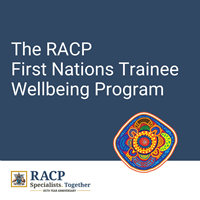
The RACP’s inaugural
First Nations Trainee Wellbeing Program is now open for enrolment from RACP Basic Trainees who identify as Aboriginal and/or Torres Strait Islander. The program is being delivered by the team at Blak Wattle Coaching & Consulting. It includes a series of four online group workshops and resources that will use Aboriginal knowledge systems to nurture
and support the wellbeing and resilience of participants. The program runs over six months and is fully funded by the College.
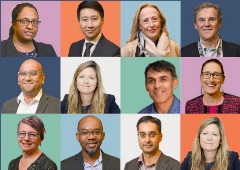 Whether you are a New Fellow, established within your career, or beginning to wind down for retirement, the RACP CPD Home can support you to meet your specialist regulatory requirements.
Whether you are a New Fellow, established within your career, or beginning to wind down for retirement, the RACP CPD Home can support you to meet your specialist regulatory requirements.
We have a long history as an accredited CPD provider within Australia and Aotearoa New Zealand, and our MyCPD team are at hand to provide you with tailored guidance throughout the annual CPD cycle. Plus, your RACP membership means you can access the RACP Online Learning platform for a selection of tools and resources relevant to you throughout your career.
You have never stopped learning, we’re here to make sure that continues. My RACP. MyCPD Home.
Find out more
Stay informed
Read other RACP eBulletins and access current news on the RACP Online Community (the ROC):
Join the conversation in the ROC